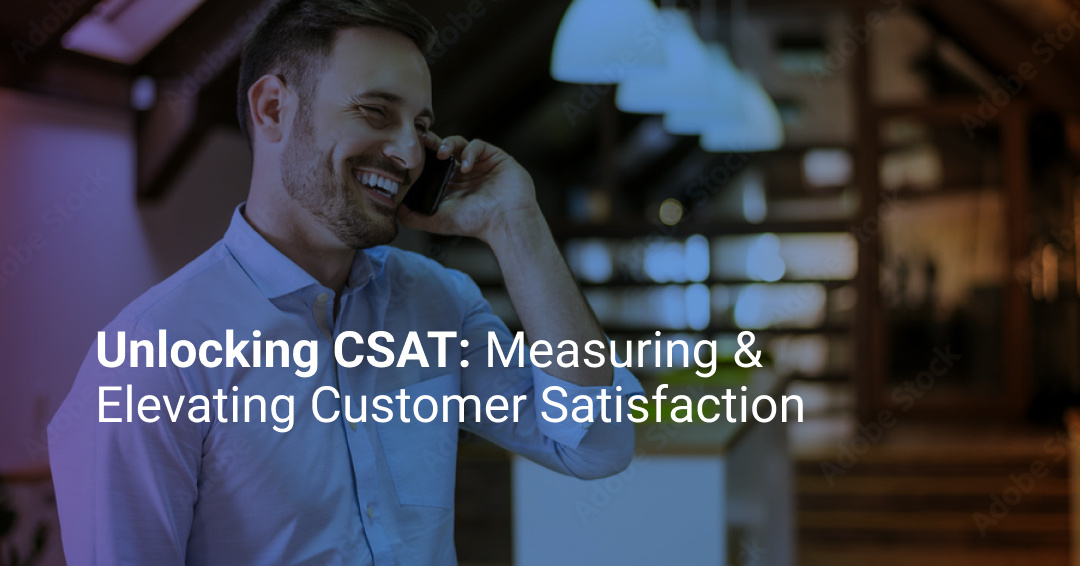12 Call Center Metrics You Should Be Using to Improve CX in 2025
Call center metrics are the most important performance indicators that monitor how effectively your call center is running. This includes anything...
Conversational AI solutions are changing customer service in nearly every industry. In the case of the healthcare industry, technological advancements allow patients to interact with their healthcare providers right from their mobile devices faster than ever.
In this transformational period, allowing patients to control their health with multiple services is vital. While the primary healthcare basics remain the most critical, additional ways to provide value in daily interactions represent an opportunity for healthcare providers.
In this entry, we will discuss the benefits and use cases of conversational AI. We will also briefly discuss the challenges between AI and healthcare management and the future of conversational AI in this industry.
Being a healthcare provider means more than just helping patients who actively require urgent medical assistance. The patient-healthcare provider relationship is much more complex and must account for multiple touch points across their health journey. It is precisely through this support lens that conversational AI can become a helpful solution to improve customer experience without operational or financial overheads.
One of the most important benefits of healthcare providers is to have permanent customer service options to help their patients. This aspect, however, represents an operational and in many cases a financial challenge for providers. Conversational AI disrupts this problem by providing compassionate and caring service automatically, anytime. Reducing wait times means better patient care.
Conversational AI can improve operational efficiency by automating tasks, making patient communication more efficient and automated, and providing insights into decision-making processes. Processes such as appointment scheduling, providing essential support, and managing records can be automated to save your team time and effort. Likewise, you can improve patient engagement by letting your personnel focus on higher value-added tasks.
Given the accelerated pace of technology, patients expect healthcare providers to become more present in their lives and become a partner in their search for a healthy lifestyle. Conversational AI solutions can become an ally that helps providers become more present by assisting patients in managing their appointments, sending timely reminders, and helping them with their prescriptions and renewals, among many other interactions. In the end, by having a technological partner that automatically takes care of such processes your patients experience better service.
Every patient has unique needs. However, the need for personalization in such a complex industry can be daunting without a technological partner that can successfully integrate all of the personalized requirements with legal and regulatory mandates and best healthcare practices. Conversational AI helps organizations understand users’ data at a very detailed level while integrating it with overall industry guidelines to help your patients get the service they deserve without operational or financial overhead.
Healthcare data in the digital age represents a challenge for most providers. On the one hand, the volume and number of data points are pretty large, and on the other hand, managing such databases in a compliant way and serving patients is a complicated problem to solve. However, the opportunity to better understand your patients, anticipate their needs, and become a genuinely supportive partner is much easier if you have AI systems in place.
Handling large numbers of patients has a toll on operational complexities. Providers that adopt technologies like conversational AI can reduce the costs of successfully serving patients while continuing to provide caring and thoughtful service. Integrating it with your customer service representatives allows them to focus on more complex cases while your automated AI handles more straightforward scenarios such as data collection.
The healthcare industry can benefit from incorporating conversational AI throughout the patient’s journey. From solving simple FAQ questions, booking appointments, and renewing prescriptions to more sensitive matters like updating their account information.
Below, we will share a few conversational AI use cases in the healthcare industry.
Automatically help your patients schedule their appointments without speaking with an agent. With conversational AI that sounds human and understands intent, patients can successfully book appointments, reschedule them, and cancel them without adding operational overhead for the providers.
Monitoring patients is a time consuming process for healthcare staff members. Conversational AI can play a role by automatically following up with patients and if need be generate notifications for healthcare professionals to do a more thorough checkup.
Analyzing symptoms and following triage processes can be done by a conversational AI partner to help providers prioritize patients in more severe conditions. At the same time, it allows your staff members to allocate their time more effectively and focus on critical problems instead of having to diagnose every single patient themselves.
Once a person becomes a patient, healthcare providers must follow multiple onboarding processes to onboard them successfully. Conversational AI can be a helpful tool to empower patients to go through various onboarding activities, such as choosing their primary doctor, updating their information, receiving updates, and more.
Conversational AI also plays a role in insurance-related activities by automatically compiling information about the claim without any human interaction. This step makes processing much more efficient by providing staff members with all the necessary documentation to determine how to serve patients in each case.
While the topic of mental health support and conversational AI can be controversial, modern technologies allow providers to give mental health support to more patients, prioritizing those at higher risk. This way, providers can better serve more people while also providing higher quality service for those who need it more urgently. Ultimately, improving the quality and speed of care can have a major impact.
With conversational AI, healthcare providers can be more proactive regarding their patient’s health by sending reminders and alerts. Among the many tasks conversational AI can take over are medication reminders, dosages, information regarding side effects, and answering questions without having any human intervention.
Conversational AI can also play a role in educating patients and helping them improve their quality of life with a proactive healthcare provider. From daily habits such as assisting customers to have a more balanced diet to vaccine reminders, healthcare providers can automate processes to be more present and helpful.
While the benefits of conversational AI in healthcare outweigh the challenges, there are still multiple fundamental principles that healthcare providers must consider before integrating these technologies.
Ensuring your patients' data is permanently secure must be a priority for all healthcare providers in modern times. While most information systems have vulnerabilities, ensuring privacy and security is a priority and an additional feature that conversational AI technologies can provide. While this is not always the case with conversational AI providers, by partnering with enterprise providers like Mosaicx, you can rest assured our data management practices are up to standard and meet all privacy and security features and regulations.
A common problem with conversational AI is that the less advanced IVR systems are less effective at understanding intent and providing an accurate answer. This becomes a problem for patients and providers as neither party gets the desired outcome by having the wrong type of technology for the job. These issues, however, are not prevalent in the industry with more advanced solutions that specialize in intent capture and have integrated machine learning and generative AI technologies to learn and provide reliable answers.
While many patients may welcome self-serve conversational AI solutions, others may be a bit more wary about this technology. While the penetration of AI is everywhere, it is understandable for specific population segments to feel uncomfortable speaking with a virtual agent. Providers need to remind their patients that conversational AI is perfectly safe and can help them improve their healthcare management by skipping hold times and solving problems faster.
Conversational AI providers come in all shapes and sizes. While most specialize in solving the problem from an agile perspective without integration efforts, providers like Mosaicx focus on serving enterprises and their entire internal processes. That means that the level of service and technical support you get allows you to avoid integration challenges with your tech stack, reducing development debt and operational complexities.
While predicting the future for technological innovation is unlikely, there are potential scenarios where conversational AI can play a more predominant role in the healthcare industry. For example, with the advancements and exponential growth of artificial intelligence ecosystems, it is possible to have trained virtual assistants who act as a physician’s concierge or even become low-risk primary care providers, potentially raising ethical concerns and unlimited potential with the proper guardrails.
At the same time, applications in multiple fields, like mental health, may dramatically change with the evolution of conversational AI. They may have a more predominant role in becoming your mental health partner, helping providers monitor patients and raising alerts and warnings for high-risk cases.
At Mosaicx, we assist healthcare providers in integrating next-generation conversational AI. We provide insights, guidance, and solutions informed by the latest developments in AI and customer service technology.
To learn more about how our virtual agents can transform your business, please request a demo. We are ready to assist you and ensure that every interaction matters for your business.

Call center metrics are the most important performance indicators that monitor how effectively your call center is running. This includes anything...

Businesses across industries have changed or evolved over the decades, but one thing that has remained the same is that their growth is pretty much...

Customers have several major expectations from modern businesses, but none is as challenging as them reading your mind to anticipate support you...
